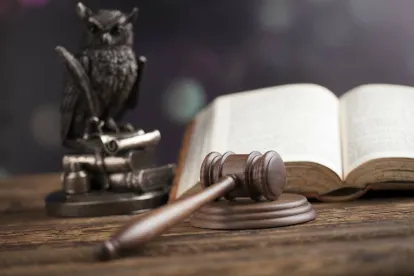The Massachusetts Supreme Judicial Court Wednesday affirmed a lower court’s dismissal of a legal malpractice suit finding that, “simultaneous representation by a law firm in the prosecution of patents for two clients competing in the same technology area for similar inventions is not a per se violation,” of certain Massachusetts attorney professional conduct rules.
The case was brought by Chris Maling, who hired patent prosecuting attorneys at Finnegan Henderson to prosecute a set of patent applications relating to screwless eyeglass hinges. According to Maling’s complaint, Finnegan was representing his competitor in the screwless eyeglass market, filing patent applications for that competitor. Maling claimed that he would not have hired Finnegan if he had known that the firm was representing the competitor in the same “patent space.”
Maling further alleged that he was harmed when he asked the law firm to provide him with a legal opinion addressing similarities between Maling’s patents and the competitor’s patents, and the firm declined to do so. Without the opinion, Maling said, he was unable to obtain funding for his invention, and his product was unmarketable due to similarities with the competitor’s device. Maling’s complaint alleged several claims for relief, including legal malpractice, all hinging on the existence of an alleged undisclosed conflict of interest arising from Finnegan’s representation of both Maling and his competitor.
The Court based its ruling on a thorough analysis of Rule 1.7 of the Massachusetts Rules of Professional Conduct governing conflicts of interests between current clients. In particular, the Court found that the two representations were not “directly adverse” under the rule because direct adverseness does not arise merely from a conflict of economic interests, but requires “a conflict as to the legal rights and duties of the clients.” The Court further noted that Maling and his competitor, “were not competing for the same patent, but rather different patents for similar devices.”
The case is Maling v. Finnegan, Henderson, Farabow, Garrett & Dunner, LLP, SJC-11800, in the Massachusetts Supreme Judicial Court. A copy of the opinion is here.



 />i
/>i
